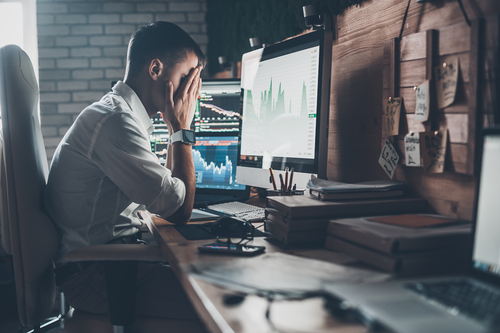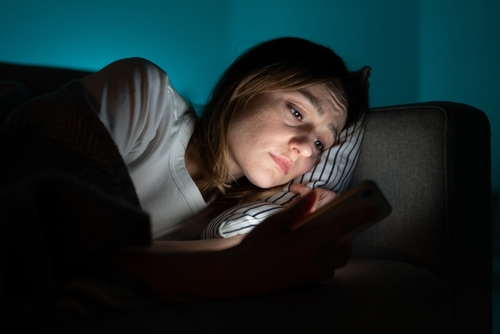Bad mental health days can bring us down and ruin our mood for the rest of the week. One bad mental health day isn’t something that requires clinical help, but if you’ve been noticing the same negative feelings day after day, it might be time to look into therapy or counseling.
While professionals can offer a lot of valuable insight and help, there are plenty of things you can do yourself to lift your spirits and boost your mood during a bad mental health day. This article discusses a few major causes of bad mental health days, habits you should avoid during this period, and healthy ways to make yourself feel better and come to terms with your feelings.
What Can Cause A Bad Mental Health Day?
Bad mental health days can feel overwhelming, clouding your brain with negative feelings, including low energy, no interest in hobbies, diminished motivation, and mood swings. Normal and unexpected things can impact your mental health for the day, like bad traffic or forgetting your keys or phone at home. But some things can slowly accumulate and unload all in a single day. These include:
- Increased stress and anxiety: Major life changes or challenging situations like a death in the family or job loss can cause physical and mental strain. In other cases, we may overlook extreme stress because it’s associated with increased workload or performance expectations. But, if you’re not taking time to destress, these stressors can build up and overload, leading to a bad mental health day.
- Low moods: Recovering from a significant trauma, like the death of a loved one, can naturally lead to prolonged sadness and grief. This can lead to disruptions in sleep patterns and decreased appetite, depriving their bodies of these essential needs. These factors can contribute to a bad mental health day.
- Neglecting self-care: A lack of self-care can definitely contribute to a bad mental health day. Poor personal hygiene, like body odor, greasy hair, and dirty clothes, can negatively affect self-esteem and overall mood.
- Chemical imbalances: Imbalances in neurotransmitters such as serotonin and dopamine, which play vital roles in regulating mood and emotions, can contribute to feelings of low mood or depression. Mental health issues can also be caused by neuroinflammation, which refers to inflammation in the brain, and oxidative stress, which occurs when there is an imbalance between antioxidants and harmful free radicals.

Unhealthy Ways To Deal With A Bad Mental Health Day
Bad mental health days can make it difficult to identify our needs and choose the right coping mechanism. This can cause individuals to cope with a bad mental health day with unhealthy and potentially harming bad habits, including:
- Avoiding issues. While it may seem easier to avoid or suppress current problems, pushing them back or shrugging them off can cause them to resurface unexpectedly, potentially triggering further distress.
- Spending all day online: While social media, apps, and the internet can stimulate your brain, offer new information, and connect you with others, you won’t feel better by jumping into an online world. Your body and brain need sunlight, water, and physical activity.
- Sleeping too much: Similar to avoiding problems, sleeping too much can increase fatigue and lower energy levels. While your body requires rest, it also benefits from physical movement.
- Substance abuse: Engaging in drug and alcohol use can be a dangerous path to tread. While stimulants and depressants may offer temporary relief by numbing feelings and suppressing negative thoughts, excessive use can have severe health consequences, including addiction, overdose, and even death.
- Impulsive spending: Retail therapy, which can involve buying small amenities, can seem like a harmless way to improve your mood. But this can slowly escalate into severe financial problems and purchase addictions.
- Over or undereating: Your body needs proper nutrition to function and focus throughout the day. If you notice you or someone you know is eating less or more than usual, and there are feelings of depression or anxiety, it could be a sign of an unhealthy coping mechanism.

10 Healthy Ways To Deal With A Bad Mental Health Day
Difficult emotions and negative feelings or moods are part of being human. And just as bad mental health days are common, there are healthy and effective ways of managing them. These include:
- Accepting your feelings: If you notice your mood is not as high as on other days, practice accepting those feelings. You don’t need to be happy-go-lucky every day of the week. The first step for overcoming a bad mental health day is accepting that these days are normal and can be remedied.
- Talk out your feelings: When experiencing a difficult mental health day, it is essential to share your feelings with friends and family. This act of venting can provide mental relief and act as a stimulus to halt negative thought processes.
- Do a quick workout: Workouts do not need to be an hour-long session at a public gym. You can do small 10-minute workouts in the middle of the day. This can be as simple as jumping jacks, squats, and lunges. Then, you can feel proud and tell yourself, “I worked out today.
- Cook your favorite meal: Cooking something that makes you happy or preparing something you used to eat as a kid can bring you feelings of comfort and contentment. If you don’t enjoy cooking, you can always order something healthy and nutritious. This will also get you out of the house and help you feel engaged and productive.
- Don’t overwork yourself: While it’s helpful to have a specific to-do list of things you want to do on a bad mental health day, the last thing you want to do is overwhelm yourself with too many tasks. Rather than feeling guilty or upset for not completing everything on your list, complete the absolute essentials and pick up everything else when you can.
- Don’t forget basic self-care: Many online blogs suggest elaborate self-care activities like face masks or bubble baths, which may not be feasible when you lack motivation. On bad mental health days, it’s crucial to simplify and focus on essential tasks. It’s understandable if you don’t feel like styling your hair, wearing makeup, or putting effort into your appearance. Instead, try simple acts like making your bed, changing out of pajamas, or showering. These small acts of self-care can be considered accomplishments and help you navigate the day. Being grateful for achieving these small tasks can gradually improve your mood.
- Monitor yourself: Monitoring yourself through mood trackers, daily activity recorders, and routines can enhance self-awareness, support emotional self-regulation, and identify triggers, cues, and habits. Additionally, learning how to feel good on a bad mental health day requires openness to new experiences and insights.
- Create a mental health toolbox: A mental health toolbox can help you find healthy ways to manage your feelings since a bad mental health day can make it hard to think rationally and remember the positives in your life. Write down five things you like doing that make you feel better and set those aside. Then, on your next bad mental health day, you can easily pick up these suggestions and thank your past self for thinking ahead.
- Get into hobbies: Long-term hobbies can give you something to do and focus on over longer periods. A bad mental health day can be easily remedied once you notice you have an unfinished book or want to finish a painting. Even though these things require motivation, they offer easy ways to distract yourself and get involved in something creative.
- Get enough sleep: Adults typically require seven to nine hours per night. Studies have shown that insomnia can contribute to the development and exacerbation of various mental health issues, including depression and anxiety.

Finding Comfort In Mental Health Housing
Bad mental health days are also tied to your environment. Toxic and unsupportive home life can make it challenging to focus on your mental health needs and stick to healthy habits. For example, argumentative or judgmental family members can deter you from venting or expressing your feelings. This can lead to bottled-up feelings and loneliness.
Some individuals find it hard to identify and implement healthy coping mechanisms if one or multiple people in their home use drugs. These unhealthy addictions can hinder mental well-being and introduce unhealthy habits.
Mental health housing programs are designed to create a safe space for individuals to overcome debilitating mental health disorders without judgment, unrealistic expectations, and environmental stressors. These programs recognize that each person’s journey toward mental well-being is unique and should be approached with compassion and understanding. By fostering an environment where individuals can set realistic goals and progress at their own pace, mental health housing programs empower individuals to take ownership of their recovery process.
Read more: A Guide To Mental Health Housing Programs In California
Contact Riviera Recovery
If you or someone you know is struggling with a streak of bad mental health days, contact Riviera Recovery. Our mental health homes are the perfect place to overcome mental health conditions through the guidance of experts and evidence-based healing modalities. If mental health housing isn’t something you need right now, call anyway, and one of our admissions agents can direct you to one of our clinical partnerships, where you can find resources for outpatient treatment and medically-assisted detox.


